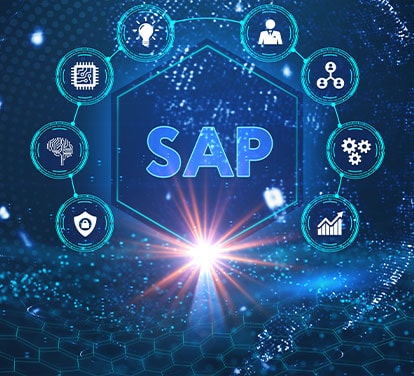Written by: Mohan Iyer, Practice Director, Enterprise Applications, Jade Global
Implementing a successful ERP system is an important milestone in any company’s operational history. This could involve a specific vision, direction and managing change. It also can be an important rite of passage for the team members -- cathartic for some, transitional for others.
After decades of consulting on and managing ERP implementations, we observe that few transitions go smoothly. Nearly all organizations experience hiccups and obstacles and challenges during an implementation.
An ERP system is self-descriptive. It is a system that pervades the enterprise to utilize its resources efficiently and for a common goal! An ERP system creates a phenomenal change in process and behavior. It also demands collaboration for success. Three components – akin to tears - must exist in the correct proportion to achieve an organization's desired result. As with tears they can provide smooth and clear vision or keep you crying!
If you appropriately manage change, propose and push process efficiencies, and ensure collaboration - your organization's ERP implementation will have a greater chance of success.
An ERP implementation is like Building a House
Let us take a real-life example. One that is close to a lot of people’s hearts and almost as important, if not more; a house. Building a house is a similar experience to an ERP implementation. You plan, you deliberate and then decide to take the final step to build! What does one need in a house? It is not about what you want, but what you need. You need a foundation to last a long time, room for the family to grow into a complete unit, and importance of things that allow you to enter, enjoy and get the benefits of living in it.
You need a strong foundation (design and vision), room to grow (process design and change management), and ensure that you can get in and get out what you need (collaboration). To manage your ERP foundation, you must create and institute a strong process for all activities/functions. Next, you design these processes with flexibility and scalability that allows growth, rather than restrict your business to the current scenario. Then, you ensure you’re your organization drives to capture data accurately at levels that ensure effective reporting.
Effective Resource Management
Resource limitations exist for every project and, for your implementation to be successful, resources need to be managed effectively. You are not going to get a limitless supply. These and other constraints will impact the success of any project. Listed below are typical constraints of an ERP implementation project:
- Time
- Money
- Vision
- Skill
When these are not appropriately in consonance with the larger goal of an enterprise, the following areas below get impacted and contribute to failure:
- Process Design
- Documentation
- Training
- Change Management
The above limitations can be seen in these situations, phrases or statements:
- Insisting a manual process transposes exactly the same in the ERP system
- Not focusing on reporting as an outcome of the project
- Designing requirements for your operations today rather than basing them upon how you want to scale your business
- Engaging in discussions that focus on results rather than requirements — "I want this." rather than "Here is what I need."
It is important to realize that an ERP project MUST have the vision, skills, and direction for a strong change management focus to help in reaching a successful implementation outcome. Download datasheet: ERP Practice Overview
To schedule a meeting with Mohan Iyer and/or request a FREE Cloud Assessment for your enterprise, email info@jadeglobal.com













